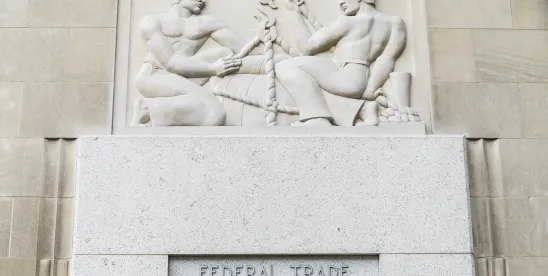On May 9, 2025, the Federal Trade Commission voted to defer the compliance deadline for the amended Negative Option Rule (“Click-to-Cancel”) Rule by sixty (60) days. The amended Rule expands the scope of the prior version to cover any goods or services involving a negative option, automatic renewal plan, free trials and subscriptions. Additionally, it imposes restrictions that in some instances are more onerous that various state automatice renewal laws.
Of note, the recent amendments to the Negative Option Rule (f/k/a “Click-to-Cancel”), which went into effect on January 19, 2025, provide that misrepresenting any material facts while offering any good or service with a negative-option feature is an unfair or deceptive act or practice in violation of Section 5 of the FTC Act. This applies regardless of whether the misrepresentation is related to the negative option feature, or not. This feature of the amended Negative Option Rule already became effective in January 2025. It, as well as other features of the amended Rule, are presently the subject of judicial challenge.
The rest of the amended Rule pertaining to disclosures, consent and cancellation of negative option features were to become effective May 15, 2025. However, the FTC has now deferred enforcement of these provisions through July 2025. Starting then, in the absence of judicial intervention, covered businesses will be required to be in full compliance with the amended Negative Option Rule. .
“But the Commission’s decision to defer enforcement necessarily acknowledged that compliance entailed some level of difficulty,” according to FTC attorneys. Having conducted a fresh assessment of the burdens that forcing compliance by this date would impose, the FTC has determined that the original deferral period insufficiently accounted for the complexity of compliance.”
Of note, California’s amended automatic renewal law begins July 1. In September 2024, California Gov. Gavin Newsom signed into law AB 2863, amending California’s already onerous automatic renewal law. For example, and without limitation, the amended California ARL expands the definition of “automatic renewal” to include “a plan, arrangement, or provision of a contract that contains a free-to-pay conversion or …,” which places negative option programs within the scope of the statute. It also defines “free-to-pay conversion” as “an offer or agreement to sell or provide any goods or services, a provision under which a customer receives a product or service for free for an initial period and will incur an obligation to pay for the product or service if they do not take affirmative action to cancel before the end of that period.”
The amended California ARL also makes it unlawful to fail to obtain a consumer’s express affirmative consent to the automatic renewal or continuous service offer terms. In doing so, it effectively requires two consents – one for the terms of the service and another for the automatic renewal. California’s amended ARL also makes it unlawful requires that consumers be provided with notice of automatic renewal until cancellation, the length of the renewal period, additional terms of the renewal period and the amount or range of costs that consumers will be charged – before confirming the consumer’s billing information. Consumers must also be provided a means to cancel subscriptions as easily as the means used to sign-up. There is language in the amended ARL regading how businesses may try to save offers when consumers attempt to cancel, along with cancellation attempt disclosure requriements.
The amended Negative Option Rule applies broadly to negative option marketing in all forms, whether via the Internet, telephone, print materials or in-person transactions. It also applies to B2B transactions. Additionally, the amended Rule does not require consumers to actually utilize the negative option feature in order for the Rule to be applicable. Instead, the product or service need only be marketed or sold “with” a negative option feature. Advertisers and marketers consult with an experienced FTC compliance lawyer to discuss how to comply with FTC Negative Option Rule. Violations provide the FTC with the authority to seek redress and civil penalties.




 />i
/>i

